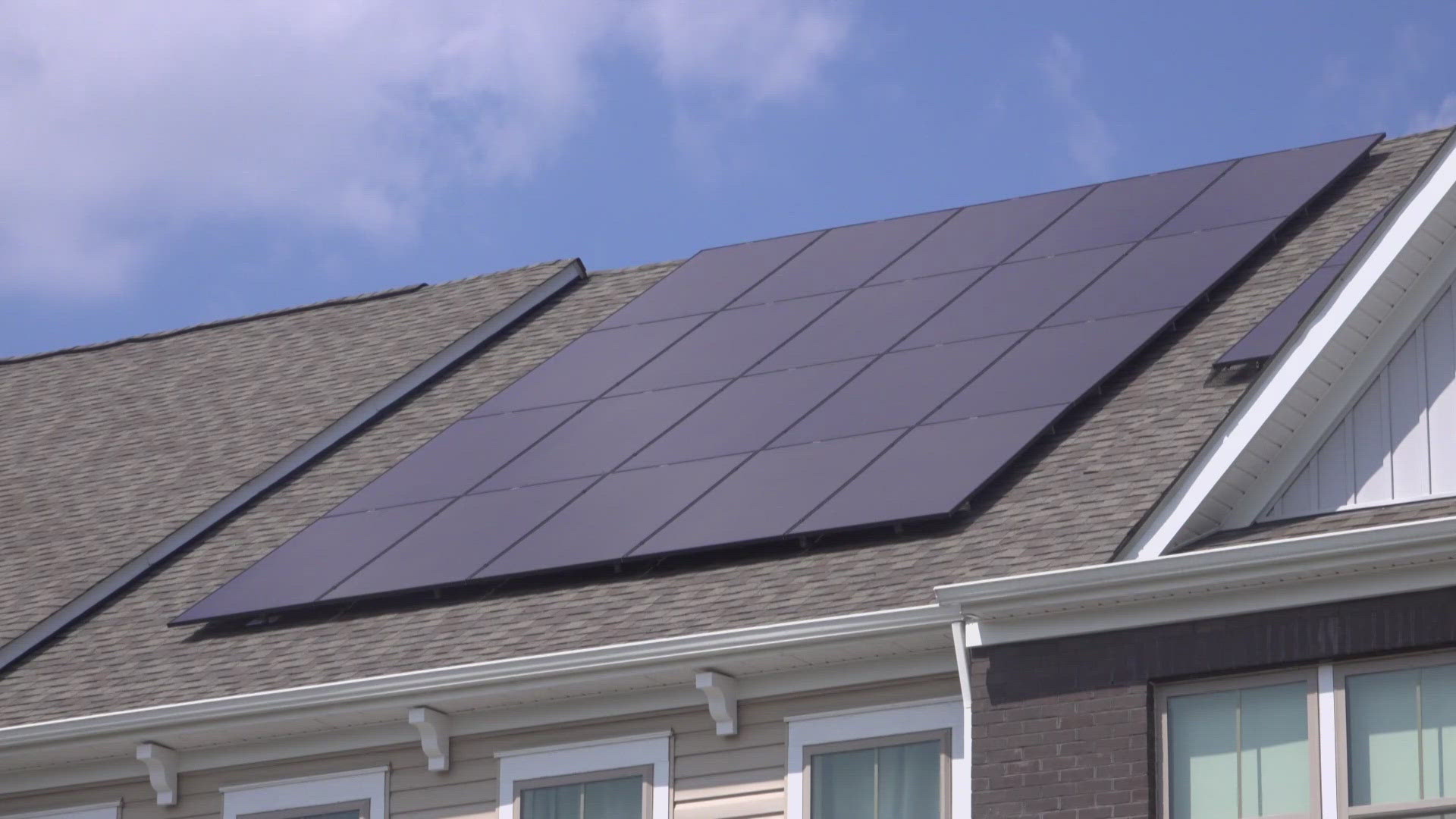HERNDON, Va. — Fall and winter can be great times to shop for residential solar energy systems because demand drops and installers can get more competitive to stay busy.
But buying a system is a major investment that requires a lot of research, according to homeowner Daniel Guzman of Herndon, who recently installed a system on the roof of his townhome.
"There's a lot of misinformation out there," Guzman warned, after going through the process. "You might be a good candidate for solar but you might not be."
With the average cost of a residential system in Virginia running $26,000 after all the tax incentives, it’s a big investment.
Guzman chose Dominion Energy Solutions after an assessment by that company's solar consultant Jessica Cooper, who warns solar is not suited to every homeowner.
"Shade is a big one," said Cooper as she discussed the variables customers need to consider. "There's the orientation of the roof. The best orientation is a south-facing roof. Then we go east and west. A north-facing roof typically is not good for solar at all. Solar does not make sense on every house, but when it does it makes good sense."
Other complex factors can include:
- Roof type
- Type of panels and electronics supporting the system
- Whether to invest further in expensive home battery storage
- Financing arrangements
- Reimbursement rate for the excess power you produce
Currently, in Virginia, utilities must pay full retail for residential solar energy flowing into their systems, an arrangement called "net metering." But consumer advocates expect utilities to apply to state regulators for lower rates in the coming months.
Navigating the information can be a lot more complicated than buying a car, according to experts. That’s why in Maryland and Virginia a nonprofit organization called Solar United Neighbors offers independent consultations with a free help desk so you can check your research. Solar United Neighbors warns of numerous scams in the solar installation industry.
Guzman said he’s happy with the system he bought, which Dominion Energy Solutions says is expected to offset his utility bills by 83%. But he cautions that he also has to pay off his system over the years to come.
"It's not like you're going to save money instantly," Guzman said. "You’ve got to know you're in it for the long haul."
On average it takes six to 10 years to pay off the cost of a residential solar installation.

